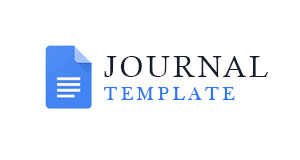The Effectiveness of Productive Zakat Distribution on The Welfare Level of Mustahiq a Study at BAZNAS in Depok City
Abstract
Keywords
Full Text:
PDFReferences
Al Arif, M. N. R., Arisman, A., & Harahap, D. (2021). Export, Political Stability, and Growth in Developing-8 Countries. Studies of Applied Economics, 39(2). https://doi.org/10.25115/eea.v39i2.3448
Arisman, A., Al Arif, M. N. R., & Harahap, D. (2021). Trade Agreement and Economic Growth: Evidence in D-8 Countries. Signifikan: Jurnal Ilmu Ekonomi, 10(2), 311–324. https://doi.org/10.15408/sjie.v10i2.21457
Augustine, Leny. Impact of Zakat on Mustahiq's Welfare Based on the BAZNAS Welfare Index. (2020). Philanthropy: Journal of Zakat and Waqf Management. BAZNAS.(2021).BAZNAS Strategic Study Center.Accessed fromhttps://www.puskasBAZNAS.com/publications/zcp BPS. (2021). Official News Statistics.. No. 37/05/Th. XXIV. BPS. (2021). National Labor Force Survey Booklet. BPS. (2021). Condition of Workers in Indonesia. BPS. (2021). The percentage of poor people in March 2021 fell to 10.14 percent. BPS, Depok. (2021). Depok City Poverty Profile. BPS, Depok City. (2022). Depok City in Figures (Depok Municipality in Figures). BPS, West Java. (2021). Percentage of Poor Population, 2019-2021. Hayati, Rina. Definition of Simple Linear Regression, How to Calculate, and Examples. (2020). Accessed fromUnderstanding Simple Linear Regression, HowCount, and Examples | Scientific Research.Com Cahyani, U. E., Ardiansyah, M., & Sunaryati, S. (2020). Islamic Social Reporting and Financial Distress In List of Sharia Securities. IQTISHADIA, 13(2), 157. https://doi.org/10.21043/iqtishadia.v13i2.7756Cahyani, U. E., Hanafi, S. M., & Masruri, S. (2022). The Nexus Between University Support and Entrepreneurial Mindset: Does Entrepreneurship Education Matter? Indonesian Journal of Business and Entrepreneurship. https://doi.org/10.17358/ijbe.8.3.351
Cahyani, U. E., Masruri, S., & Hanafi, S. M. (2022). DOES ENTREPRENEURSHIP EDUCATION MATTER FOR ISLAMIC HIGHER EDUCATION STUDENTS’ ENTREPRENEURIAL READINESS? Jurnal Ekonomi Bisnis dan Kewirausahaan, 11(2), 258. https://doi.org/10.26418/jebik.v11i2.55092
Cahyani, U. E., Sari, D. P., & Afandi, A. (2022). Determinant of Behavioral Intention to Use Digital Zakat Payment: The Moderating Role of Knowledge of Zakat. ZISWAF: JURNAL ZAKAT DAN WAKAF, 9(1), 1. https://doi.org/10.21043/ziswaf.v9i1.13330
Harahap, D. (2017). Determinan Dana Pihak Ketiga Bank Syariah di Indonesia: Model Vector Autoregresive. IQTISHADIA, 10(1). http://dx.doi.org/10.21043/iqtishadia.v10i1.2432
Hartono, Nono and Gustani. (2022). Java Regional Zakat Mapping Index. Puzkaz BAZNAS. Jakarta. Hasibuan, A. N. (2022). The Role of Company Characteristics in the Quality of Financial Reporting in Indonesian. Jurnal Ilmiah Peuradeun, 10(1), 1. https://doi.org/10.26811/peuradeun.v10i1.666 Karuni, Mudita Sri. (2020). The Effect of Zakat Funds on Human Development in Indonesia. Iqtishaduna Scientific Journal Vol 9 No. 2 2020. Outlook for Indonesian Zakat. (2021). BAZNAS Puskas. Puzkas, BAZNAS. (2018). Had Kifayah Study 2018.Rasyid, A. (2019). DINAMIKA PELAKSANAAN SERTIFIKASI HALAL PADA PRODUK MAKANAN DAN MINUMAN DI KOTA MEDAN, SIBOLGA DAN PADANGSIDIMPUAN. MIQOT: Jurnal Ilmu-ilmu Keislaman, 43(2), 167. https://doi.org/10.30821/miqot.v43i2.640
RICO NUR ILHAM, IRADA SINTA, MANGASI SINURAT, ABDUL NASSER HASIBUAN, & LAKHARIS INUZULA. (2022). THE EFFECT OF MACRO ECONOMIC FACTOR ON STOCK RETURN OF STATE-OWNED ENTERPRISES (BUMN) LISTED ON THE INDONESIA STOCK EXCHANGE. https://doi.org/10.5281/ZENODO.6938564
Rukiah, R., Nuruddin, A., & Siregar, S. (2019). Islamic Human Development Index di Indonesia (Suatu Pendekatan Maqhasid Syariah). Jurnal Istinbath, 18(2). https://www.istinbath.or.id/index.php/ijhi/article/view/171
Satriawan, Nofri. (2021). Definition of Research Methods and Types of Research Methods. Research realm. Sugiyono. (2013). Quantitative, Qualitative, and R&D Research Methods. Bandung. AFABETA. Soliktun, Supono, & Masruroh, Y. (2014). Poverty in Development. Journal of Sociological Analysis Vol. 3, 70-90. WHO. (2022). World Health Statics 2022: Monitoring Health for the SDGs' Sustainable Development Goals.DOI: https://doi.org/10.24952/tijaroh.v8i2.5963
Refbacks
- There are currently no refbacks.
Copyright (c) 2022 At-tijaroh: Jurnal Ilmu Manajemen dan Bisnis Islam

This work is licensed under a Creative Commons Attribution-ShareAlike 4.0 International License.














